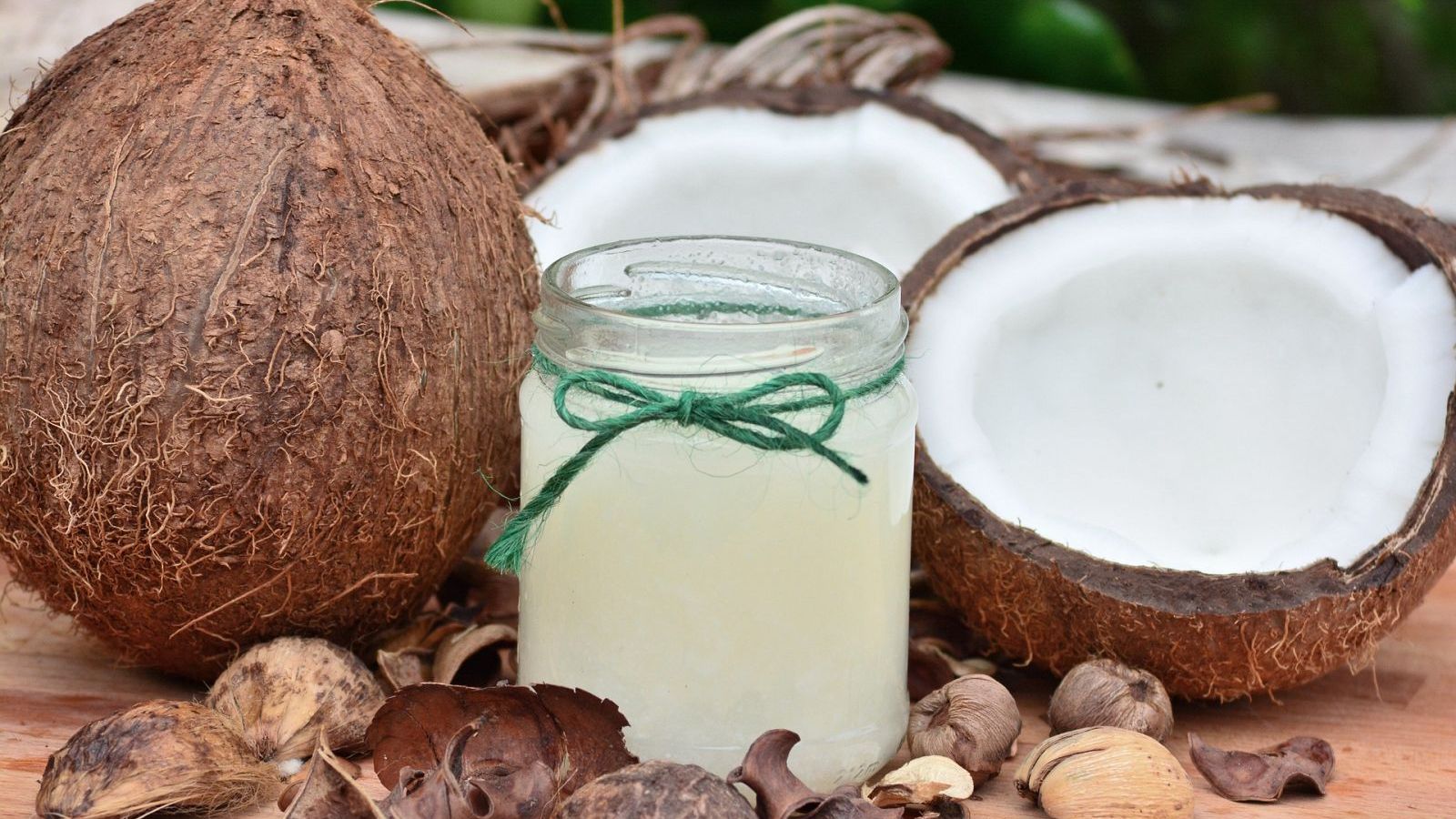COCONUT OIL, PRETTY SLICK CHOICE
Dec 06, 2019
HAD AN INTERESTING COMMENT ON A POST THIS PAST WEEK.
Earlier this week after posting a healthy holiday treat recipe in my 8 Weeks is All it Takes Facebook group, someone questioned the use of coconut oil due to its cholesterol content. It occurred to me that a little education in this area might be in order.
So, to address the question, yes, coconut oil does contain cholesterol. The type of cholesterol and what your body does with it is what matters. Coconut oil is an MCT, medium chain triglyceride, which is actually a superfood for your cells because your body can use it very efficiently. Metabolism gets boosted, immune system is supported and very little fat is stored when cells burn MCTs. Another great benefit is that coconut oil helps to balance the hormones that control your appetite, helping you to feel full and satisfied.
Not only will you be satisfied and less likely to grab something you'd later regret, Coconut oil and MCTs also help to burn fat. Nutrition expert, Dr. Mark Hyman wrote in a recent blogs, “They (MCTs) also help your body burn fat. One study found that consuming MCT oil helped reduce body fat and triglycerides more than omega 6 vegetable oils. After eight weeks, the experiment showed the MCT oil group lost more weight, body fat and subcutaneous fat, all while experiencing a 15 percent drop in triglycerides and LDL.”
As with many things health, knowing the numbers and what they mean is key. So, even though your cholesterol number may increase when using MCTs or coconut oil, the quality of the LDL improves and the size of the particles increase, lowering the risk of heart disease. Interesting fact, countries with the highest intake of coconut oil also report the lowest rates for heart disease. On the other hand, studies have shown people who limit or omit good fats from their diet and consume high-carb foods have high triglyceride levels and smaller, more dense, low-quality LDL particles. This combination will actually triples a person's risk for heart disease. Yikes!
Heart disease, diabetes, high cholesterol, high blood pressure, hypertension, along with heart attack, stroke, dementia, Alzheimers, Parkinson's, are called lifestyle diseases. And they're at an all time high. There are more drugs available and being prescribed today more than ever before. Statistics say just over 90 percent of prescriptions written are done so assuming the patient cannot do anything about their condition and must stay on the medication for the rest of their lives.
But what most people don't realize, is that although medication may bring the numbers back in line, the problem has not been corrected. Symptoms are managed, but healing has not taken place. Our bodies are not meant to live in dis-ease, it's designed to heal. Interestingly enough, roughly 90 percent of all lifestyle diseases currently being managed by prescriptions can be reversed by making healthier food choices along with some lifestyle adjustments. It's not just a coincidence those numbers match. Knowing what your numbers mean, what you're putting into your body and the effect it will have, and knowing that lifestyle diseases are a direct result of the lifestyle you have been living is key to restoring and creating optimal health. Hopefully this triggers a few light-bulb moments today.
So, going back to the question about whether or not to include coconut oil in your diet, the answer is yes. Other healthy fats like avocado (fruit or oil) and extra virgin olive oil as well as unsalted nuts, nut butters, flax seed, hemp seed, chia and fish oils are all great choices and provide health benefits as well. The bottom line is we need to put the good fats in, but we also need to take out the inflammation. Dr. Hyman confirms what I learned years ago, “...total cholesterol is not an accurate predictor of heart disease or stroke. Inflammation is the culprit for most diseases...”.
Inflammation causes rough spots to form inside the walls of blood vessels that act a bit like velcro. As the body tries to flush out cholesterol, it sticks to the rough spots. As more cholesterol passes by, more sticks until there's a blockage. And that's when things really get serious. Packaged/processed foods, refined sugars/sugar substitutes and vegetable oils all create inflammation. Simply swapping the processed foods for fresh fruits and veggies, the vegetable oils for coconut oil or other healthy fat, and ditching sugar has most folks feeling better in very short order. Better sleep, more energy, better memory and focus, reduced cholesterol, blood pressure and blood sugar, weight loss, improved immune system, reduced pain, better mood, improved digestion, relief from constipation, and even medications reduced/eliminated are just some of the wonderful benefits you can experience. If you're struggling with a health issue, I invite you to grab a jar of coconut oil, make the swaps and see what benefits you'll experience. The odds really are in your favour.

